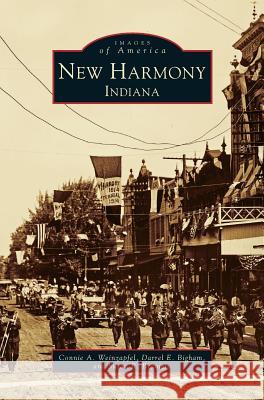New Harmony, Indiana » książka
New Harmony, Indiana
ISBN-13: 9781531602291 / Angielski / Twarda / 1999 / 130 str.
New Harmony is a town like no other. A community that
began almost two hundred years ahead of its time, New Harmony was a spiritual sanctuary that later became a haven for international scientists, scholars, and educators who sought equality in communal living. It was impossible for George Rapp
to realize the events he would set into motion when he purchased 20,000 acres of land on the Wabash River in 1814 and subsequently sold it to social reformer Robert Owen ten years later. This simple
community came to have an immense impact on our country's art and architecture, public education system, women's suffrage movement, Midwestern industrial development, and more. This book contains over 150 historic images produced by two 19th-century New Harmony photographers--Homer Fauntleroy
and William Frederick Lichtenberger. These photographs show historic buildings of New Harmony, many of which have been razed over the years. They also demonstrate the importance of the Wabash River and its influence on settlement and commerce. The people of the community are captured at work and at play, and the reader is allowed a look at the downtown business district of the past and the farms surrounding it.
New Harmony is a town like no other. A community that
began almost two hundred years ahead of its time, New Harmony was a spiritual sanctuary that later became a haven for international scientists, scholars, and educators who sought equality in communal living. It was impossible for George Rapp
to realize the events he would set into motion when he purchased 20,000 acres of land on the Wabash River in 1814 and subsequently sold it to social reformer Robert Owen ten years later. This simple
community came to have an immense impact on our countrys art and architecture, public education system, womens suffrage movement, Midwestern industrial development, and more. This book contains over 150 historic images produced by two 19th-century New Harmony photographers--Homer Fauntleroy
and William Frederick Lichtenberger. These photographs show historic buildings of New Harmony, many of which have been razed over the years. They also demonstrate the importance of the Wabash River and its influence on settlement and commerce. The people of the community are captured at work and at play, and the reader is allowed a look at the downtown business district of the past and the farms surrounding it.











